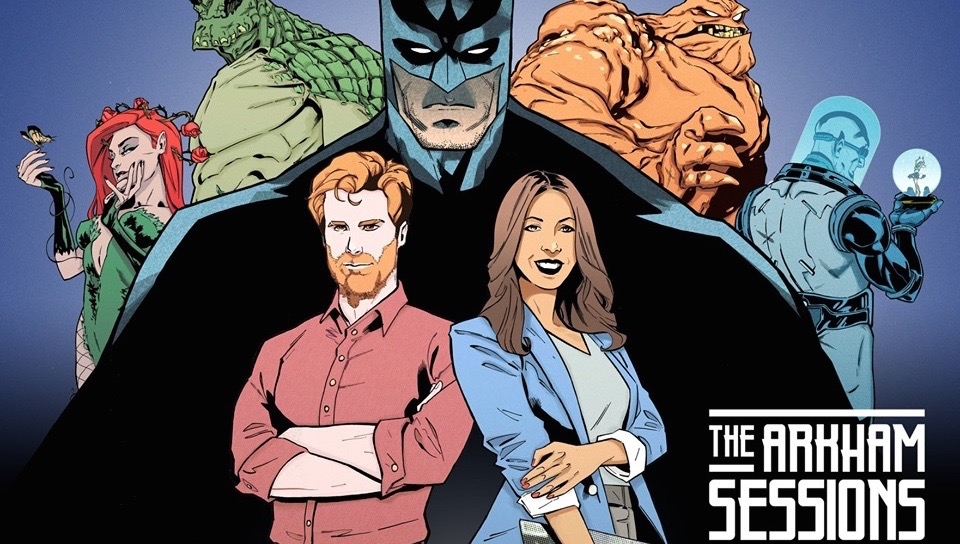The Arkham Sessions, hosted by Dr. Andrea Letamendi and Brian Ward, is a weekly podcast dedicated to the psychological analysis of pop culture, including Batman: The Animated Series, Steven Universe, the MCU, and Doom Patrol. Nostalgic, humorous, and even a little educational, each episode promises to lend some insight into the heroes, villains, and classic stories of the Dark Knight and more!
The Arkham Sessions, Ep. 170 – Thor: The Dark World
Though it doesn’t add much to the larger Avengers saga, Dark World gives Loki a significant amount of screen time and builds his character from being a one-note mischievous villain to having moments of closeness and compassion with members of his family–specifically his mother, Frigga; and his brother, Thor. To help us better understand these patterns, Drea discusses Family Systems Theory, which posits that the family functions as one emotional unit (or system) and that the dynamics between family members serve to keep the family cohesive. This is the case even if the connections are unhealthy, harmful, or unbalanced. For instance, individuals in the family solicit each other’s attention, approval, and support, and in turn react to each other’s needs, expectations, and upsets. Loki, the adopted trouble-maker, will nearly always be treated by family as unreliable and self-serving; he, in turn, fulfills these expectations for the attention. At times, Loki is emotionally cut-off from his family, perhaps to manage the unresolved tension between them. Other times, because he is poorly differentiated and relies on the approval of his family, Loki seeks connection to them.
Thor and Loki, therefore, share an emotional connectedness and reactivity–making the functionality of them interdependent. This is evidenced by Thor seeking Loki’s help in his efforts to save Jane Foster; Thor knows that Loki has the moral flexibility and cunningness to achieve this goal, but he also knows that Loki is dependent on Thor’s approval of him and wants to be seen as valuable and even extraordinary.
At the end of the film, it is no surprise that Loki chooses to betray everyone in order to meet his own neglected needs. These repeated dynamics could be interesting in therapy, but as it turns out, they’re exhausting on screen.
If you’d like to read Drea’s article on Loki, you can find it here: https://www.fandom.com/articles/loki-psychology-mcu-marvel
Drea’s article on Halloween: https://www.fandom.com/articles/halloween-kills-psychology-laurie-strode-michael-myers
If you’re interested in the Pop Culture Perspectives with Paxton episode on Malekith, you can listen here: https://podcasts.apple.com/us/podcast/pop-culture-perspectives-with-paxton/id1579253876?i=1000530895808
Have psychology-related questions about Batman? Write to us via Twitter, @ArkhamSessions, or on Facebook. Or visit our official website.
And, don’t forget to subscribe to The Arkham Sessions on Apple Podcasts to get all of the latest episodes! And, be sure to join us on Patreon.

